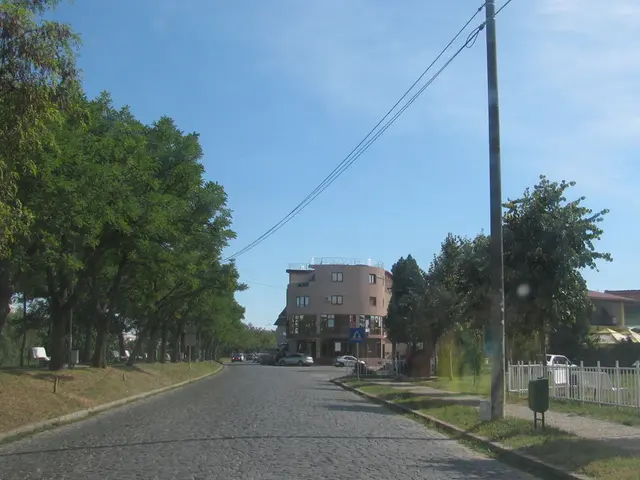"Residents of the Algarve Region Call for an Economy Less Tied to Seasonal Fluctuations"
The Future Algarve: Towards a Resilient, Sustainable Region
The voice of Maria Graça Carvalho at the University of Algarve debate resonates with a call for change. She champions the region's people, envisioning an Algarve less tied to seasonality and external factors, offering security, stability, and a promising future. "It's high time the Algarve flourishes with a self-reliant economy," she asserts.
Drought Relief and Water Management
March brought a silver lining to the Algarve, as the Minister announced a relaxation of water usage and consumption restrictions. March was, in fact, the first time in two decades that the dams held so much water in the southern region, he added. The slight reprieve from the drought conditions has sparked hope, with discussion of potential further relaxation within agriculture, urban sectors, and tourism sectors.
Hopes surface as restrictions, first imposed in February 2024 by the António Costa (PS) government due to a drought alert, have now eased under the leadership of Prime Minister Luís Montenegro. Investments towards enhancing water availability in the region have also been increased, reflecting a pressing need to address the ongoing water crisis.
Beyond Tourism: A Vision for Economic Diversification
The Algarve's economy, historically reliant on tourism, is now eyeing diversification. Strategic sectors such as renewable energy, healthcare, and technology are being eyed to offer economic resilience beyond the holiday season. With Portugal currently exploring projects aimed at year-round growth, the Algarve's future looks promising.
National investments, backed by the Recovery and Resilience Plan (PRR), are playing a significant role in this shift. Initiatives concerning infrastructure, digitization, and green technologies will help stimulate growth while enhancing the region's flexibility to adapt to the future. The EU, too, is expected to lend a hand, with Portugal receiving €25 billion from the NextGenerationEU fund to boost economic development and sustainability.
Water Conservation and Climate Resilience
Despite specific plans for water management remaining unclear, broader strategies for sustainable water usage, water infrastructure upgrades, and climate-resilient water management are being adopted nationwide. These tactics aim to minimize water waste, improve water efficiency, enhance water systems, and protect water sources, ensuring the Algarve's water resources can withstand the challenges of a changing climate.
As the Algarve marches towards economic resilience and water security, the region's people eagerly await the Day when they can face the future without fear of droughts or economic instability. Adapting to the changing landscape and embracing innovation are key to realizing Maria Graça Carvalho's vision for an empowered and prosperous Algarve.
- Amidst discussions about the Algarve's economic diversification, Maria Graça Carvalho's call for self-reliance resonates, as she advocates for strategies that move the region beyond tourism and into sectors like renewable energy, healthcare, and technology.
- The recent easing of water usage restrictions, following the announcement by the Prime Minister Luís Montenegro, has sparked hope in the Algarve, with discussions of potential further relaxation within agriculture, urban sectors, and tourism sectors.
- National investments, backed by the Recovery and Resilience Plan (PRR), are playing a significant role in the shift towards economic diversification, with initiatives aimed at infrastructure, digitization, and green technologies to stimulate growth and enhance the region's flexibility.
- Beyond water management strategies, broader tactics for sustainable water usage, water infrastructure upgrades, and climate-resilient water management are being adopted nationwide, aiming to minimize water waste, improve efficiency, and protect water sources.
- The ongoing water crisis and the need to adapt to a changing climate have prompted the EU to lend support to Portugal, with Portugal receiving €25 billion from the NextGenerationEU fund to boost economic development and sustainability in the Algarve and other regions.







